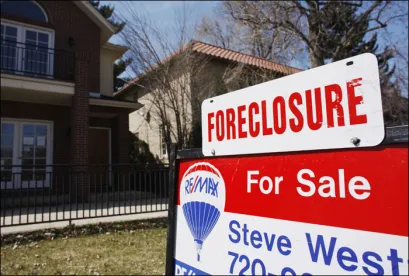Spoiler alert! The zombie apocalypse in this article was not caused by a top secret government experiment, well-intentioned vaccination protocol, or ancient (and very cold) magic. The zombies discussed in this article were created by men and women garbed in Brooks Brothers (ok, probably Joseph A. Banks) and Anne Taylor. The zombies in question were created by stalled and abandoned foreclosure actions as well as a bank’s unwillingness to initiate foreclosure. Like their zombie relatives, zombie mortgages cause serious problems to the living mortgages and communities within their reach. Instead of eating brains like some of their zombie forbears, zombie mortgages eat the revenue stream flowing to community associations.
The foreclosure process may be halted (or not initiated) for a number of reasons such as defects in the loan documents and/or unwanted carrying costs. After the housing bubble burst in 2008, it became increasingly difficult for banks to offload foreclosed properties. To avoid taking on the financial burden of additional bank-owned properties, banks started to balk at taking back properties through the foreclosure process. Situations in which a bank’s loan documents may be defective (which often times exposes a bank to liability) can create enough uncertainty on the part of the banker to avoid or halt the foreclosure. Whether the foreclosure was halted or never initiated, the end result is a nonperforming property that remains titled to the delinquent owner. You can bet that if the owner has failed to pay on the mortgage, that he has also failed to pay any assessments or maintain the property.
These situations leave community associations in quite a conundrum. Unpaid assessments continue to mount as the property itself deteriorates. During this period of the undead, banks rarely maintain the properties and never pay the assessments since the banks do not yet technically own the unit. Community associations, along with neighboring units, suffer during the zombie mortgage’s lifecycle.
Like the movies, is there any way to stop the undead? Unfortunately, I am not aware of any tried-and-true method for dispatching the zombie mortgage. One very low cost method for trying to spur a reluctant bank into action is employed by New York Assemblyman Michael P. Kearns, whose technique traces its roots to the public shaming days of the Puritans. Mr. Kearns’ staff post signs on the properties of zombie mortgages with messages as “Shame on You (ABC Lender) for Not Completing the Foreclosure Process.” Combined with a social media campaign, this tactic could prove successful in an era where banks are hyper-vigilante about their public image.
If a community association client came to me with a zombie mortgage, I would explore the option of foreclosing on the delinquent assessments. Assuming there was sufficient equity, the association could take back the unit at sheriff’s sale subject to the mortgage and could rent and/or sell the unit for a price that could generate a win/win for both association and bank. At the very least, a foreclosure action would likely spur the bank into action and rid your community of an undead property.


 />i
/>i